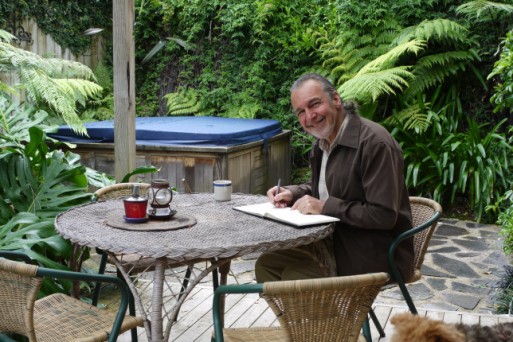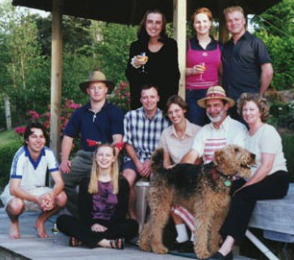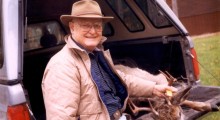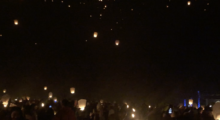Death — and the sadness it invokes — lurk in the back of our minds as the inevitable, fearsome couplet of our life’s story.
We have a concept of the trajectory of our days: they begin at birth and coast on for decades, varied by ups-and-downs and slowed by old age. Thinking about end of life preparations means approaching an unknown, taboo part of this mental landscape. Many people experience sudden pangs of regret, sadness and frustration — all aspects of a topic that has been picking up speed lately, “the top five regrets of the dying.”
Terminally ill educator and pediatrician Stephen Wealthall wants to change this mentality – and he says it’s something we’re all capable of achieving. We just need to work on our relationship with death in everyday life.
10 weeks ago, 69 year old Wealthall learned he was terminally ill with cancer. Doctors told him that he could live longer if he opted for some palliative treatments, but Wealthall knew his illness would eventually end his life.
“Naturally my wife Faye and I were sad,” says Wealthall, “but we were sad we wouldn’t be spending more time together, not because of me dying.”
Originally from Yorkshire, New Zealand-based Wealthall said he grew up in an environment where death was not a taboo topic. Thus, the notion of dying didn’t exist on a verboten island in his brain; it was open for discussion at the dinner table and dissociated from its negativity. “It’s an internal fear we have created,” says palliative care nurse Anne Morgan, “…that fear of the unknown. But we have that in everyday life, like when you go off for a job interview.”
Okay. But death is a little more frightening than a job interview. Unless you look at it as a job interview with the God(s) of your faith.
We can’t completely remove sadness, regret, or depression from our thoughts about dying; humans just can’t compartmentalize their emotions as simply as that. But what we can do, says Wealthall, is have frank conversations about death that bring it into the norm. For him, the hardest part of learning he was dying wasn’t filled with burdensome regrets of dying, but with “the acceptance of reality rather than the wishing for things that are not obtainable.”
Do you make any efforts to talk about death and dying with your family and friends? We look forward to your comments below.
Related SevenPonds Articles:
- Read: The Top Five Regrets of the Dying
- Book Review: “Sacred Dying” by Megory Anderson
- Interview: What is Palliative Care at a Veteran Hospital like?

 A No-Fear Approach to Death
A No-Fear Approach to Death





 Greenland Sharks May Offer Clues to Extending Human Lifespans
Greenland Sharks May Offer Clues to Extending Human Lifespans
 Losing Her Constant
Losing Her Constant















